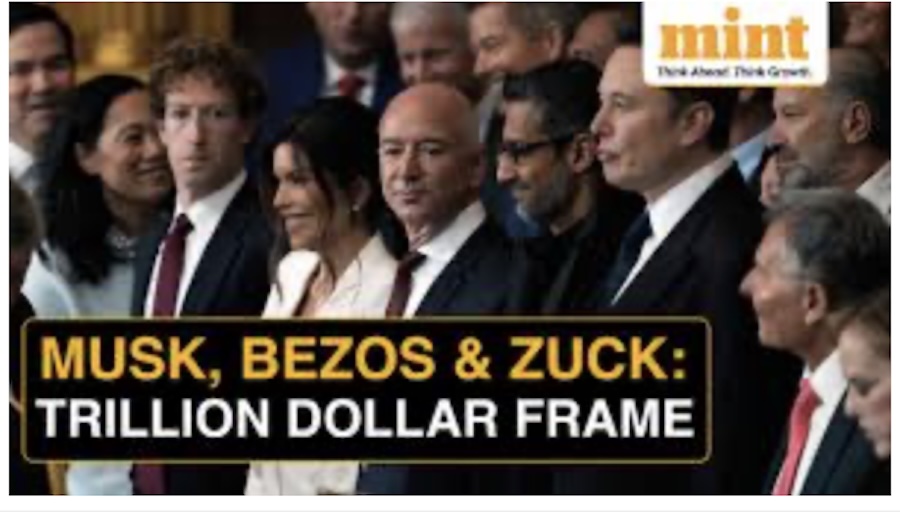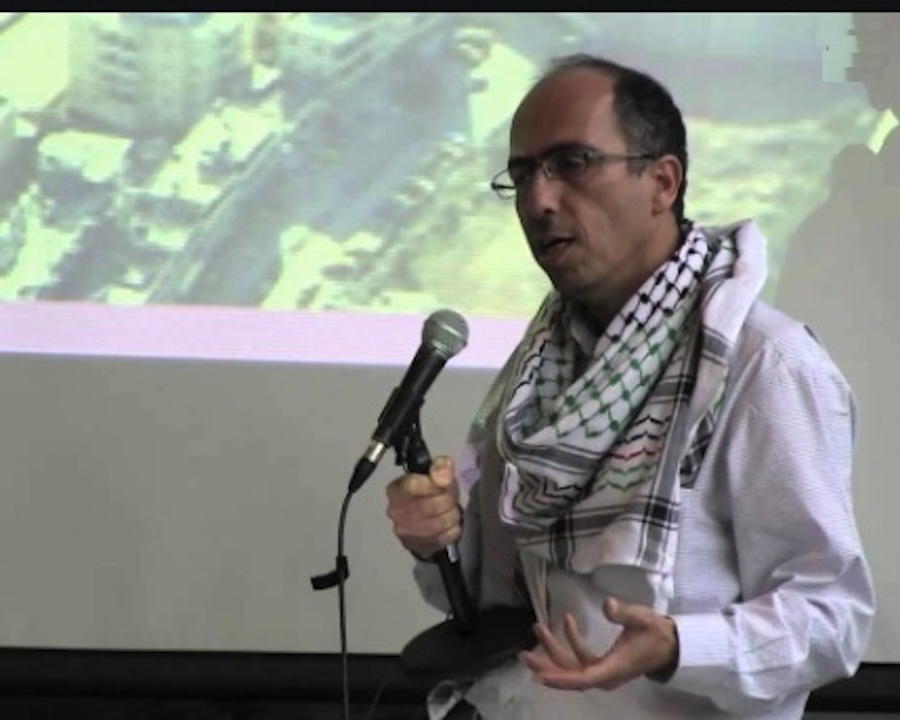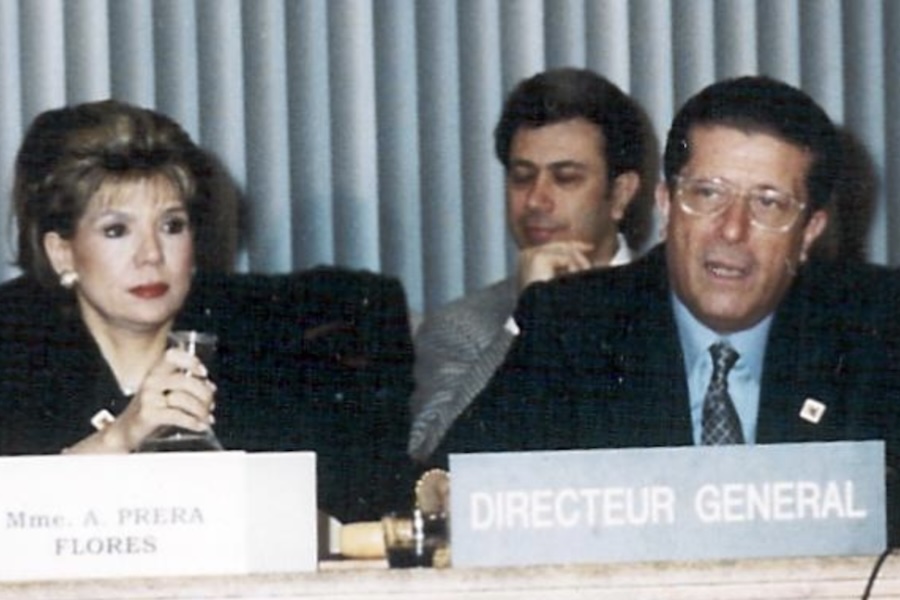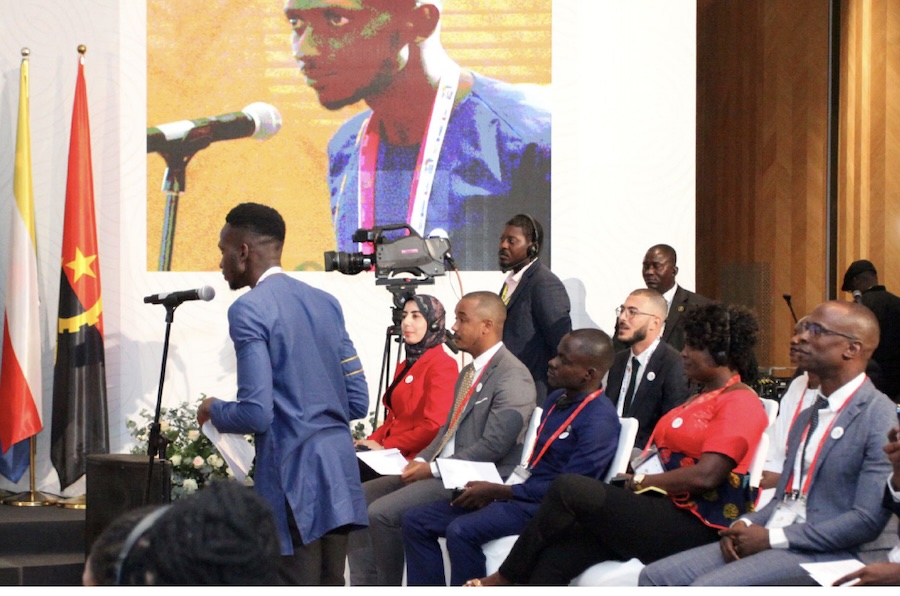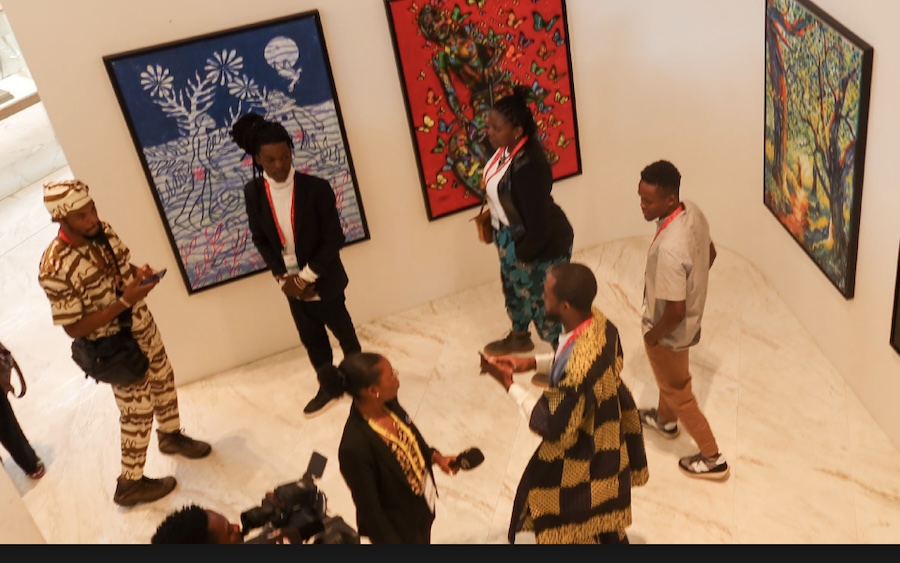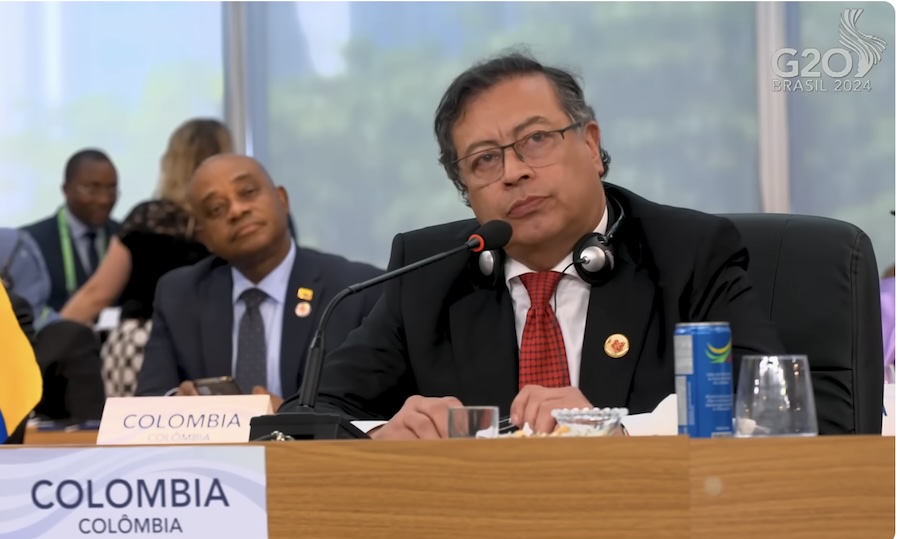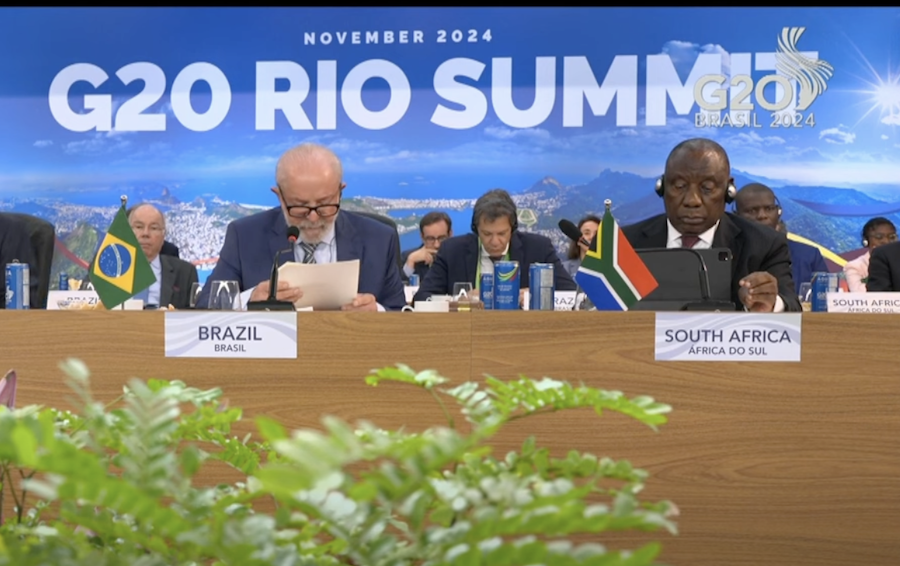FREE FLOW OF INFORMATION .
Excerpts from the transcript of video provided by Russian Ministry
Question [from Tucker Carlson]: Minister Lavrov, thank you for doing this. Do you believe the United States and Russia are at war with each other right now?
Sergey Lavrov: I wouldn’t say so. And in any case, this is not what we want. We would like to have normal relations with all our neighbors, of course, but generally with all countries especially with the great country like the United States. And President Vladimir Putin repeatedly expressed his respect for the American people, for the American history, for the American achievements in the world, and we don’t see any reason why Russia and the United States cannot cooperate for the sake of the universe.
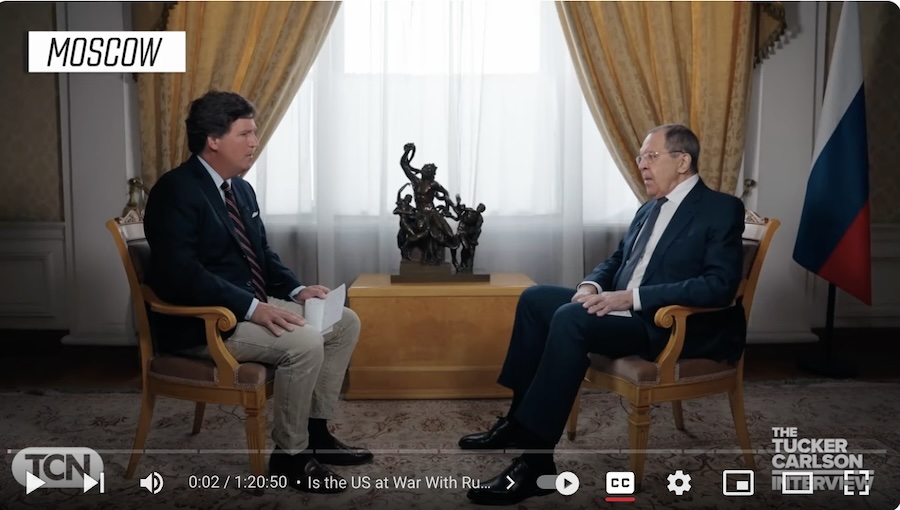
video of interview
Question: But the United States is funding a conflict that you’re involved in, of course, and now is allowing attacks on Russia itself. So that doesn’t constitute war?
Sergey Lavrov: Well, we officially are not at war. But what is going on in Ukraine is that some people call it hybrid war. I would call it hybrid war as well, but it is obvious that the Ukrainians would not be able to do what they’re doing with long-range modern weapons without direct participation of the American servicemen. And this is dangerous, no doubt about this.
We don’t want to aggravate the situation, but since ATACMS and other long-range weapons are being used against mainland Russia as it were, we are sending signals. We hope that the last one, a couple of weeks ago, the signal with the new weapon system called Oreshnik was taken seriously.
However, we also know that some officials in the Pentagon and in other places, including NATO, started saying in the last few days something like that NATO is a defensive alliance, but sometimes you can strike first because the attack is the best defense. Some others in STRATCOM, Thomas Buchanan is his name, representative of STRATCOM, said something which allows for an eventuality of exchange of limited nuclear strikes.
And this kind of threats are really worrying. Because if they are following the logic which some Westerners have been pronouncing lately, that don’t believe that Russia has red lines, they announced their red lines, these red lines are being moved again and again. This is a very serious mistake. That’s what I would like to say in response to this question.
It is not us who started the war. Putin repeatedly said that we started the special military operation in order to end the war which Kiev regime was conducting against its own people in the parts of Donbass. And just in his latest statement, the President Putin clearly indicated that we are ready for any eventuality. But we strongly prefer peaceful solution through negotiations on the basis of respecting legitimate security interest of Russia, and on the basis of respecting the people who live in Ukraine, who still live in Ukraine being Russians, and their basic human rights, language rights, religious rights, have been exterminated by a series of legislation passed by the Ukrainian parliament. They started long before the special military operation.
Since 2017, legislation was passed prohibiting Russian education in Russian, prohibiting Russian media operating in Ukraine, then prohibiting Ukrainian media working in Russian language, and the latest, of course there were also steps to cancel any cultural events in Russian, Russian books were thrown out of libraries and exterminated. The latest was the law prohibiting canonic Orthodox Church, Ukrainian Orthodox Church. . . .
The Minsk agreements were signed. We were very sincerely interested in closing this drama by seeing Minsk agreements implemented fully. It was sabotaged by the government, which was established after the coup d’état in Ukraine. There was a demand that they enter into a direct dialogue with the people who did not accept the coup. There was a demand that they promote economic relations with that part of Ukraine. And so on and so forth. None of this was done. . .
.
The people in Kiev were saying we would never talk to them directly. And this is in spite of the fact that the demand to talk to them directly was endorsed by the Security Council. And putschists said they are terrorists, we would be fighting them, and they would be dying in cellars because we are stronger.
Had the coup in February 2014 had it not happened and the deal which was reached the day before between the then president and the opposition implemented, Ukraine would have stayed one piece by now with Crimea in it. It’s absolutely clear. They did not deliver on the deal. Instead they staged the coup. The deal, by the way, provided for creation of a government of national unity in February 2014, and holding early elections, which the then president would have lost. Everybody knew that. But they were impatient and took the government buildings next morning. They went to this Maidan Square and announced that they created the government of the winners. Compare the government of national unity to prepare for elections and the government of the winners. . . .
Question: I want to go back to what you said a moment ago about the introduction or the unveiling of the hypersonic weapons system that you said was a signal to the West. What signal exactly? I think many Americans are not even aware that this happened. What message were you sending by showing it to the world?
Sergey Lavrov: Well, the message is that you, I mean the United States, and the allies of the United States who also provide this long-range weapons to the Kiev regime, they must understand that we would be ready to use any means not to allow them to succeed in what they call strategic defeat of Russia.
They fight for keeping the hegemony over the world on any country, any region, any continent. We fight for our legitimate security interests. They say, for example, 1991 borders. Lindsey Graham, who visited some time ago Vladimir Zelensky for another talk, he bluntly, in his presence said that Ukraine is very rich with rare earth metals and they cannot leave this richness to the Russians. We must take it. We fight.
So they fight for the regime which is ready to sell or to give to the West all the natural and human resources. We fight for the people who have been living on these lands, whose ancestors were actually developing those lands, building cities, building factories for centuries and centuries. We care about people, not about natural resources which somebody in the United States would like to keep and to have Ukrainians just as servants sitting on these natural resources.
So the message which we wanted to send by testing in real action this hypersonic system is that we will be ready to do anything to defend our legitimate interests.
We hate even to think about war with the United States, which will take nuclear character. Our military doctrine says that the most important thing is to avoid a nuclear war. And it was us, by the way, who initiated in January 2022 the message, the joint statement by the leaders of the five permanent members of the Security Council saying that we will do anything to avoid confrontation between us, acknowledging and respecting each other’s security interests and concerns. This was our initiative. . . .
Question: If I could just go back to the question of nuclear exchange. So there is no mechanism by which the leaders of Russia and the United States can speak to each other to avoid the kind of misunderstanding that could kill hundreds of millions of people.
(Continued in right column)
Question related to this article:
Is the media an arm of the culture of war?
(Continued from left column)
Sergey Lavrov: No. We have this channel which is automatically engaged when ballistic missile launch is taking place.
As regards this Oreshnik hypersonic mid-range ballistic missile. 30 minutes in advance the system sent the message to the United States. They knew that this was the case and that they don’t mistake it for anything bigger and real dangerous.
Question: I think the system sounds very dangerous.
Sergey Lavrov: Well, it was a test launch, you know.
Question: Yes. Oh, you’re speaking of the test, okay. But I just wonder how worried you are that, considering there doesn’t seem to be a lot of conversation between the two countries. Both sides are speaking about exterminating the other’s populations. That this could somehow get out of control in a very short period and no one could stop it. It seems incredibly reckless.
Sergey Lavrov: No, we are not talking about exterminating anybody’s population. We did not start this war. We have been, for years and years and years, sending warnings that pushing NATO closer and closer to our borders is going to create a problem.
In 2007, Putin started to explain to the people who seemed to be overtaken by the ‘end of history’ and being dominant, no challenge, and so on and so forth.
And of course, when the coup took place, the Americans did not hide that they were behind it. There is a conversation between Victoria Nuland and the then American ambassador in Kiev when they discuss personalities to be included in the new government after the coup. The figure of $5 billion spent on Ukraine after independence was mentioned as the guarantee that everything would be like the Americans want.
So we don’t have any intention to exterminate Ukrainian people. They are brothers and sisters to the Russian people. . . .
Question: So, what are the terms under which Russia would cease hostilities? What are you asking for? . . . .
Sergey Lavrov: Well, the terms, I basically alluded to them. When President Putin spoke in this Ministry of Foreign Affaires on the 14th of June he once again reiterated that we were ready to negotiate on the basis of the principles which were agreed in Istanbul and rejected by Boris Johnson, according to the statement of the head of the Ukrainian delegation.
The key principle is non-block status of Ukraine. And we would be ready to be part of the group of countries who would provide collective security guarantees to Ukraine.
Question: But no NATO?
Sergey Lavrov: No NATO. Absolutely. No military bases, no military exercises on the Ukrainian soil with participation of foreign troops. And this is something which he reiterated. But of course, he said, it was April 2022, now some time has passed, and the realities on the ground would have to be taken into account and accepted.
The realities on the ground are not only the line of contact, but also the changes in the Russian Constitution after referendum was held in Donetsk, Lugansk republics and Kherson and Zaporozhye regions. And they are now part of the Russian Federation, according to the Constitution. And this is a reality.
And of course, we cannot tolerate a deal which would keep the legislation which are prohibiting Russian language, Russian media, Russian culture, Ukrainian Orthodox Church, because it is a violation of the obligations of Ukraine under the UN Charter, and something must be done about it. And the fact that the West (since this russophobic legislative offensive started in 2017) was totally silent and it is silent until now, of course we would have to pay attention to this in a very special way. . . .
Question: In the last month since the election, you have all sorts of things going on politically in bordering states in this region. In Georgia, in Belarus, in Romania, and then, of course, most dramatically in Syria, you have turmoil.
Does this seem like part of an effort by the United States to make the resolution more difficult?
Sergey Lavrov: There is nothing new, frankly. Because the U.S., historically, in foreign policy, was motivated by making some trouble and then to see if they can fish in the muddy water.
Iraqi aggression, Libyan adventure – ruining the state, basically. Fleeing from Afghanistan. Now trying to get back through the back door, using the United Nations to organize some ‘event’ where the U.S. can be present, in spite of the fact that they left Afghanistan in very bad shape and arrested money and don’t want to give it back.
I think this is, if you analyze the American foreign policy steps, adventures, most of them are the right word – the pattern. They create some trouble, and then they see how to use it.
When the OSCE monitors elections, when it used to monitor elections in Russia, they would always be very negative, and in other countries as well, Belarus, Kazakhstan. This time, in Georgia, the monitoring mission of OSCE presented a positive report. And it is being ignored.
So when you need endorsement of the procedures, you do it when you like the results of the election. If you don’t like the results of elections, you ignore it.
It’s like when the United States and other Western countries recognized unilateral declaration of independence of Kosovo, they said this is the self-determination being implemented. There was no referendum in Kosovo – unilateral declaration of independence. By the way, after that the Serbs approached International Court of Justice, which ruled that (well, normally they are not very specific in their judgment, but they ruled) that when part of a territory declares independence, it is not necessarily to be agreed with the central authorities.
And when a few years later, Crimeans were holding referendum with invitation of many international observers, not from international organizations, but from parliamentarians in Europe, in Asia, in post-Soviet space, they said, no, we cannot accept this because this is violation of territorial integrity.
You know, you pick and choose. The UN Charter is not a menu. You have to respect it in all its entirety. . . . .
Question: What do you think of Donald Trump?
Sergey Lavrov: I met him several times when he was having meetings with President Putin and when he received me twice in the Oval Office when I was visiting for bilateral talks.
Well, I think he’s a very strong person. A person who wants results. Who doesn’t like procrastination on anything. This is my impression. He’s very friendly in discussions. But this does not mean that he’s pro-Russian as some people try to present him. The amount of sanctions we received under the Trump administration was very big.
We respect any choice which is made by the people when they vote. We respect the choice of American people. As President Putin said, we are and we have been open all along to the contacts with the current administration. We hope that when Donald Trump is inaugurated, we will understand. The ball, as President Putin said, is on their side. We never severed our contacts, our ties in the economy, trade, security, anything.
– – – – – –
If you wish to make a comment on this article, you may write to coordinator@cpnn-world.org with the title “Comment on (name of article)” and we will put your comment on line. Because of the flood of spam, we have discontinued the direct application of comments.
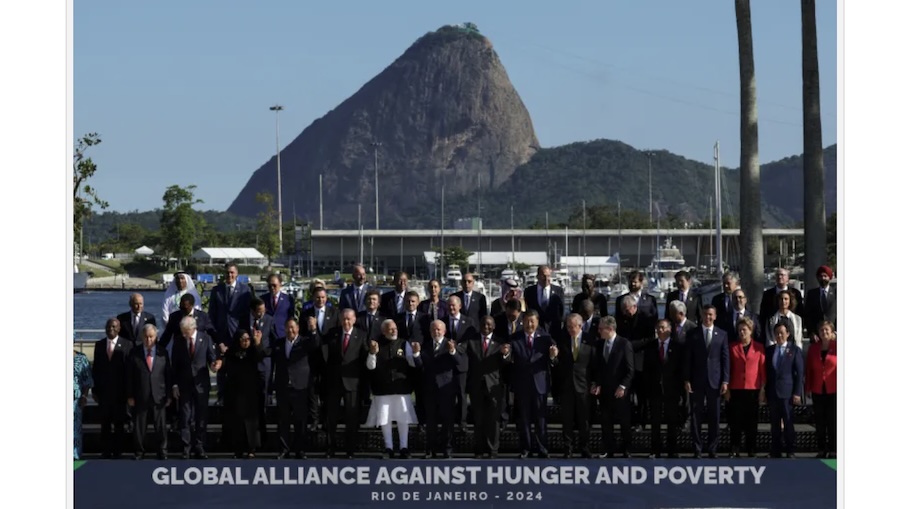
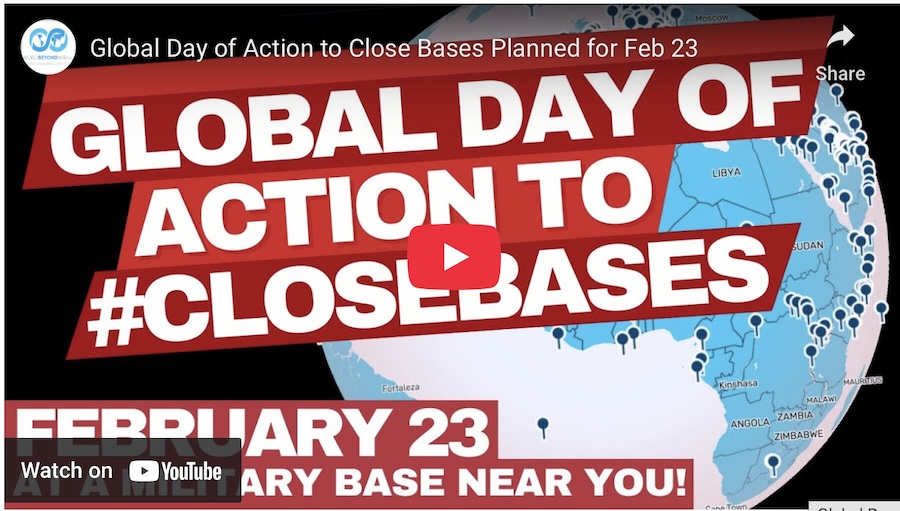 Video for Global Day of Action
Video for Global Day of Action